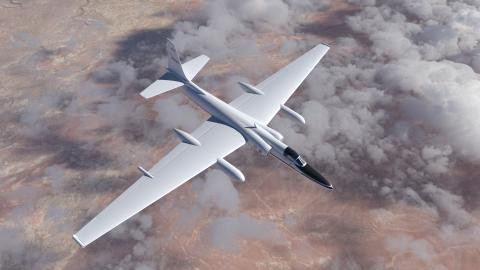
| #806 | Proficiency Flights (ends 04/25/25) |
| #809 | 600-Hr Maintenance (ends 05/29/26) |
NASA operates two ER-2 aircraft as readily deployable high altitude sensor platforms to collect remote sensing and in situ data on earth resources, atmospheric chemistry and dynamics, and oceanic processes. The aircraft also are used for electronic sensor research and development, satellite calibration and satellite data validation. Operating at 70,000 feet (21.3 km) the ER-2 acquires data above ninety-five percent of the earth’s atmosphere. The aircraft also yields an effective horizon of 300 miles (480 km) or greater at altitudes of 70,000 feet. Consequently, ER-2 sensors acquiring earth imagery or conducting atmospheric sounding replicate spatial, spectral and atmospheric characteristics of data collected by earth observing sensors aboard orbiting satellites.

